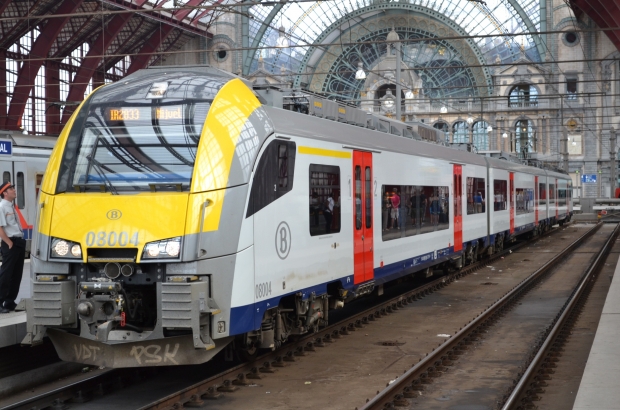- Daily & Weekly newsletters
- Buy & download The Bulletin
- Comment on our articles
New SNCB roadmap includes more late-night trains from Brussels and Antwerp
The board of directors for Belgian train operator SNCB has adopted a new transport plan for the period of 2023-2026, which includes late-night trains from Brussels and Antwerp after 1.00.
The plan also calls for an additional 2,000 trains per week over that timeframe, and that no existing stations will be closed.
SNCB said it was hoping to achieve an annual production of 89.5 million kilometres of train journeys in 2026, an increase of 7.4% compared to the current service.
The rail operator has called it "the most ambitious" plan it has ever had.
Nearly 50 suburban trains will run later on Fridays and Saturdays in the evening, which includes 30 trains running until after 1.00 from Brussels and Antwerp, according to the new plan.
While the board of directors recognises the need to optimise the number of stops - potentially closing less-used rural stations to improve journey times - it has decided “not to take a decision at this stage and to postpone any decision on this matter to a later transport plan”.
This means that no stations will be scrapped for the time being and only 22 very lightly used P-trains will no longer run, the company said.
The plan must next be approved by the Council of Ministers.
Federal mobility minister Georges Gilkinet (Ecolo) told RTBF that he hopes the plan will encourage people to take the train more often, “because it is the most environmentally friendly mode of transport, the safest one too, which can help us respond to our mobility problems”.
The SNCB transported almost 227 million passengers last year, higher than in 2021, but 10% lower than in the pre-pandemic period.
Gilkinet pointed out that Belgium suffers from traffic jams that come at an estimated cost of more than €4.5 billion.
“This is time wasted and is irritating,” Gilkinet said, calling rail “the mode of travel of the future”.
“That’s why we’ve put it back on track during this legislature,” he explained. “[The goal] is to make mobility a freedom for everyone.”
The minister also pointed out that there had been no new contract between the federal government and the public railway companies - SNCB and Infrabel - for 10 years.
“Now we have a new 10-year contract that is financed,” he said. “And for the next three years, we know the additional trains that we want to put in place, particularly on Friday evenings, Saturday evenings, to the cities to allow cultural life, economic life and a safe return home.”
One of the current problems facing Belgian rail is the lack of staff. Last year, 38,400 trains were cancelled, in part due to a lack of people to run them.
Gilkinet said the SNCB was hiring new staff in order to remedy this.
“It is a priority for the government to make the train the backbone of mobility,” he said.
“Now, it will take some time indeed and I'm sorry for the temporary inconvenience, but we're getting better.”


















